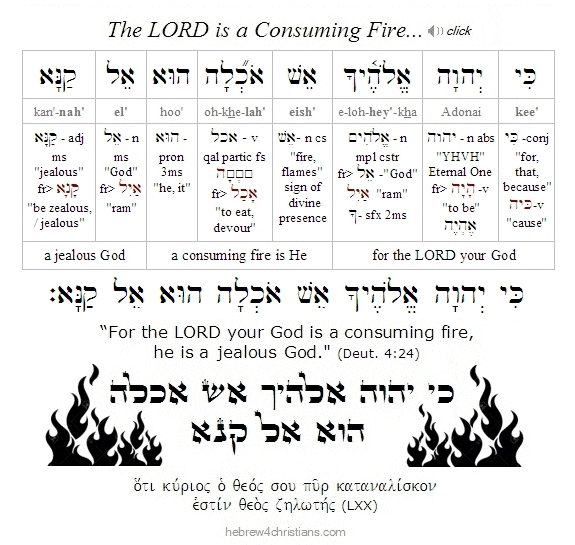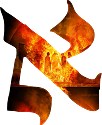|
This week's Torah portion is called Vzot HaBerakhah ("this is the blessing"), which records Moses' last words to the people before his death. It is always read just after the festival of Sukkot on the holiday of Simchat Torah. After reading this portion, we will "rewind the scroll" back to begin reading the Torah all over again. We do this every year because the study of Torah never ends!
Vzot HaBerakhah begins with a narrator's prequel, namely, "This is the blessing with which Moses the man of God blessed the people of Israel before his death" (Deut. 33:1), and then proceeds with an opening statement of praise given by Moses:
יְהוָה מִסִּינַי בָּא וְזָרַח מִשֵּׂעִיר לָמוֹ
הוֹפִיעַ מֵהַר פָּארָן וְאָתָה מֵרִבְבת קדֶשׁ
מֵימִינוֹ אֵשְׁדָּת לָמוֹ
Adonai mee·see·nai bah, ve·za·rach mee·se'eer lah·mo
ho·fee·a me·har pa·rahn ve·a·tah me·ree·ve·voht koh·desh
me·mee·noh esh·dat lah·mo

"The LORD came from Sinai and dawned from Seir upon us;
he shone forth from Mount Paran; he came from myriad of holy ones,
with flaming fire at his right hand."
(Deut. 33:2)
Notice that "flaming fire" is better translated as "fiery truth," from esh (אֵשׁ), meaning "fire," and dat (דָּת), meaning "decree," or "knowledge" (i.e., da'at: דַּעַת). The idea of "fiery truth" is related to the concept of the divine logos (ΛΟΓΟΣ), or the "Word of God," the underlying creative reason for all things in the universe (the Hellenistic idea of the logos, dating from the time of Heraclitus (6th cent. BC), perhaps later influenced the personification of the Word of God called the "memra" [מֵמְרָא] that appeared later in the Aramaic Onkelos). Some have interpreted the phrase as "fiery faith," since the revelation of the truth (i.e., Torah) was always meant to serve that greater end... In the Torah scroll, esh and dat are joined together, appearing as one word (i.e., eshdat: אֵשְׁדָּת), a word that otherwise is translated "foundation." In other words, the foundation of God's kingdom is revealed in the passion to do his will, to honor the LORD as King by exercising a "fiery faith" that is aligned with the revelation of his truth...
The midrash Tanchuma states that the phrase esh dat (אֵשׁ דָּת) is actually a description of the Torah itself: "The Torah is written black fire on white fire," which is interpreted to mean that both the letters and spaces between them constitute the "whole" of the Torah. Another way to say this is that the "white fire" represents God's Spirit, who gives the black fire its foundation (אֵשְׁדָּת) and "breath." According to kabbalists, "the white space is a higher form of Torah," which is another way of saying that directly encountering the Spirit of God is higher than merely reading about Him...
But why did Moses say the LORD came "from Sinai" and not "to Sinai"? According to Rashi, this metaphor suggests that the marriage bond between God and the Jewish people was forged when God came "from Sinai," like a groom waiting for his bride, coming forth to greet her... The LORD "came forth from Sinai" to take hold of his bride.
But why then does Moses say that the LORD "dawned from Seir" and "shone forth from Mount Paran?" According to some of the sages, Moses said this to indicate God's unique choice of Israel as His chosen nation. A midrash says that before God gave the Torah to the Jewish people, he first offered it to the various nations, each of whom made various excuses why they could not accept it. For instance, the descendants of Esau (Seir) told God they could not accept it because they were destined to "live by the sword" (Gen. 27:40). Likewise, the Ishamaelites (Mount Paran) told God they could not accept the Torah because they made their living through exploitation and power (Gen. 16:12). Only the Jews answered God unreservedly, נַעֲשֶׂה וְנִשְׁמָע, na'aseh v'nishma: "we will do and we will obey," and upon their acceptance, God descended from myriads of holy angels with his Torah.
Alternatively, Maimonides interprets the verse as an abbreviated chronicle of God's revelation to Israel. First, the LORD appeared "from Sinai." After camping at the Sinai desert for a year, the people traveled to "Mount Paran," where God decreed that the people would wander in the desert 38 more years because of the sin of the spies. After this 38 year period of exile was over, the people reached the border of Mount Seir, and there God appeared to Moses to guide the next generation of Israel to begin taking possession of the land. When He gave the Torah, God "came from the holy myriad," that is, He left the realm of heaven to descend and reveal the Torah to Israel....
Hebrew Lesson
Deut. 4:24 reading (click):

|



